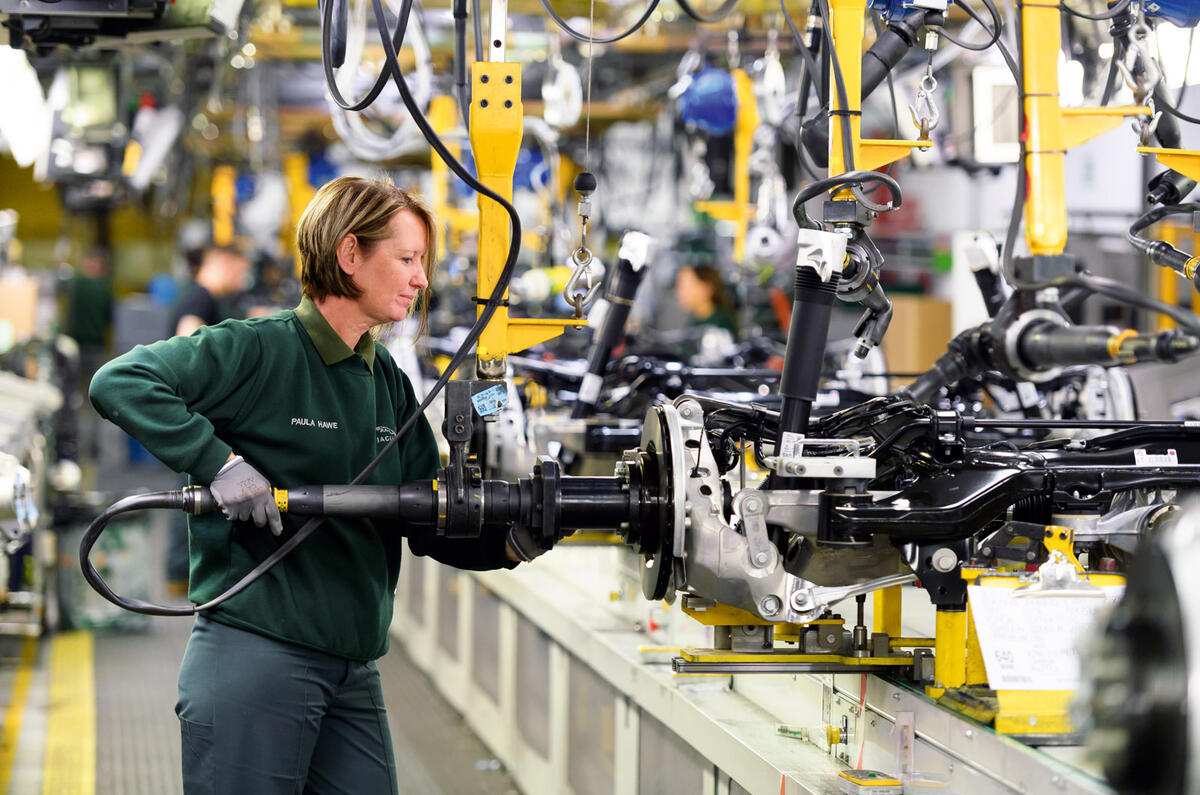According to Jaguar Land Rover’s latest official figures, Jaguar sold 161,601 cars globally last year and produced a further 6251 at its joint venture in China. That excluding-China figure is 10.6% down on 2018’s total of 180,833 cars, and 161,000 sales across six model lines remain a marginal proposition.
The biggest loser was the Jaguar XF, which fell 50% to 15,628 units in 2019. That was followed by the Jaguar XE, which was down 15% to 25,951 units. Although it was on run-out, the Jaguar XJ managed to clock up 4017 sales.
Jaguar’s biggest seller was the Jaguar F-Pace but, even so, that was down 14% from 56,563 units in 2018 to 48,484 last year. The Jaguar E-Pace managed to edge up 2% to 42,939 units.
Although 2019 was the first full sales year for the Jaguar I-Pace, its sales of 17,355 were described by one of the suppliers for the car last month as “rather less” than had been planned for. Finally, F-Type sales slipped by 9% to 7227 units in 2019.
Including the XJ, Jaguar sold 45,596 saloons and 108,778 SUVs in 2019, each across three model lines. The remaining was 7227 Jaguar F-Type sports cars.
Clearly, Jaguar remains a very small brand by global standards, but by the end of next year it will have the electric XJ, the new J-Pace flagship and a thoroughly refreshed F-Pace and E-Pace, all of which is significant investment.
Perhaps there’s now a pause on decisions relating to the Jaguar XE, XF and F-Type while bosses monitor a new-car market that’s in the middle of huge politically driven changes.
READ MORE
New Jaguar F-Pace facelift seen alongside current SUV
2020 Jaguar XJ: prototype previews electric saloon's design
From ink to I-Pace: How Jaguar designs an electric car





Join the debate
Add your comment
Not good news , xe xf being
3 problems:
1: Uncompetitive interior quality and design on the volume models (XJ and iPace excepted)
2: Uncompetitive infotainment, STILL, after many years to get it right.
3: Expensive. I understand that "it's a Jaguar", but there seems to be a 15-20% "Jaguar tax" compared to its competitors that modern buyers won't pay.
I test-drove an i-Pace the other day - really liked it, but don't see the value, especially with its "luxury EV-worst" charging speed. I don't think Jaguar is done, but it seems they don't have much time to bring things up to snuff.
Jaguar are finished. As
I don't see any way they can survive now we have a global shutdown to contend with as well.
Agreed!
Agreed, but they were doomed irrespective of a global shutdown. It's now all about salvaging what you can before the end. Not going to happen this year, but don't expect Jaguar to exist 10yrs from now.